Supreme Court sides with New York Republican in congressional redistricting fight

The Supreme Court ruled in favor of a Republican representative from New York challenging a congressional redistricting effort in a decision she said “helps restore the public’s confidence in our judicial system.” Over the dissent of the court’s three liberal justices, the conservative majority halted a state court ruling that had ordered New York’s redistricting commission to redraw the district held by Rep. Nicole Malliotakis, R-N.Y., that covers Staten Island and a small piece of Brooklyn. A judge had ruled that the district was drawn in a way that dilutes the power of its Black and Hispanic voters and had instructed the state’s Independent Redistricting Commission to complete a new map. “Today’s decision by the U.S. Supreme Court to keep New York’s 11th Congressional District intact helps restore the public’s confidence in our judicial system and proves the challenge to our district lines was always meritless. The plaintiffs in this case attempted to manipulate our state’s courts to use race as a weapon to rig our elections,” Malliotakis said in a statement. “That was wrong and, as demonstrated by today’s ruling, clearly unconstitutional.” “Unfortunately, the politicization of New York’s courts and its judges necessitated action from the nation’s highest court. I thank the Justices who stopped the voters on Staten Island and in Southern Brooklyn from being stripped of their ability to elect a representative who reflects their values,” she added. “Whether I serve another term in Congress is a decision for the voters, not Democrat party bosses and their high-priced lawyers.” THIS CRUCIAL STATE IS THE LATEST BATTLEGROUND IN REDISTRICTING WAR BETWEEN TRUMP AND DEMOCRATS In October 2025, New York voters sued state election officials in the Supreme Court of New York, the state’s trial court, to challenge the district’s lines. Malliotakis intervened to defend the current map. A law firm affiliated with Democrats had argued that the Staten Island district should be reshaped by cutting out the small section in Brooklyn and replacing it with a chunk of Lower Manhattan. The swap would have taken some Republican-leaning neighborhoods out of the district and replaced them with areas where President Donald Trump lost to former Vice President Kamala Harris by more than 50 points in 2024. FEDERAL COURT REFUSES TO BLOCK NEW UTAH CONGRESSIONAL VOTING MAP THAT MAY FAVOR DEMOCRATS While a state judge declined to impose the map they requested, he ruled a change was needed to give more voting power to the growing population of Black and Hispanic residents on Staten Island. The judge left the decision on how to redraw the state’s congressional maps to New York’s bipartisan redistricting commission, which had yet to produce any proposals. The Supreme Court did not explain the rationale for its decision Monday, but Justice Samuel Alito wrote that the judge’s ruling under New York’s constitution amounted to “unadorned racial discrimination” in violation of the U.S. Constitution, according to The Associated Press. Fox News’ Bill Mears, Shannon Bream, Maria Paronich and The Associated Press contributed to this report.
Pelosi’s war powers flip-flop exposed in resurfaced Obama-era clip contradicts Trump criticism on Iran
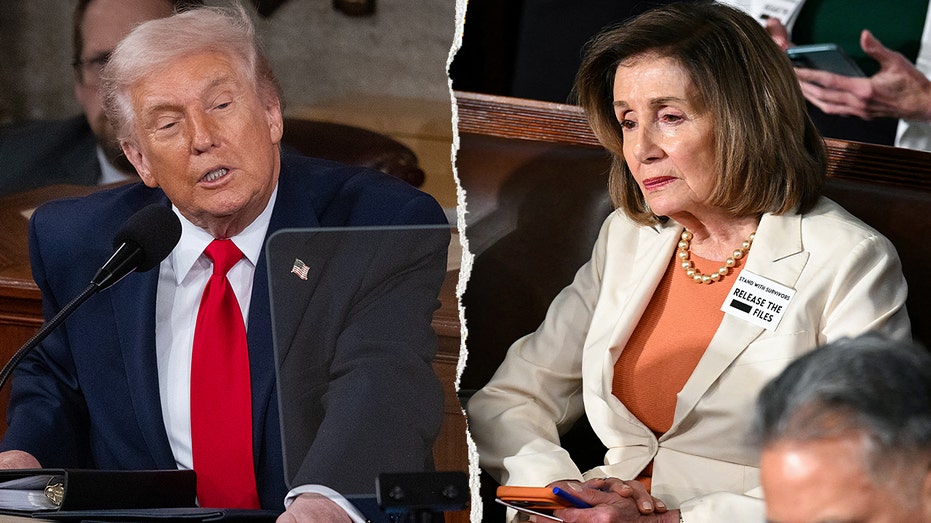
A clip of former U.S. House Speaker Nancy Pelosi, D-Calif., has resurfaced online where she flatly defended the then-Obama administration’s decision to strike Libya — without the congressional authorization she believes President Donald Trump should have secured before conducting his own strikes over the weekend. “You’re saying that the president did not need authorization initially and still does not need any authorization from Congress on Libya?” a reporter asked Pelosi at a press event back in 2011. “Yes,” Pelosi answered plainly. The unambiguous answer contrasts sharply with Pelosi’s view of Trump’s strikes against Iran on Saturday. MASSIE-LED PUSH TO HANDCUFF TRUMP ON IRAN GETS JEFFRIES’ BACKING In a joint effort targeting Iranian military leadership, the U.S. and Israel killed Iranian Supreme Leader Ayatollah Ali Khamenei on Saturday, citing an imperative to halt Iran’s pursuit of developing a nuclear weapon. Pelosi swiftly condemned the operation. “President Trump’s decision to initiate military hostilities into Iran starts another unnecessary war which endangers our servicemembers and destabilizes an already fragile region,” Pelosi said in a post to X. “The Constitution is clear: decisions that lead our nation into war must be authorized by Congress.” Pelosi, alongside other Democrats, is pursuing a war powers resolution that would limit Trump from taking further military action against Iran without express congressional approval. Trump’s strikes bear similarity to President Barack Obama’s decision to strike Libya in 2011 under Operation Odyssey Dawn. In that operation, Obama ordered a series of strikes against Libya in March 2011, looking to deter Muammar Gaddafi from attacking civilian protesters. FETTERMAN PRAISES TRUMP’S IRAN OPERATION AS ‘HISTORIC’ MOMENT FOR AMERICA AMID PARTY DIVISIONS Gaddafi, known as the “Mad Dog of the Middle East,” was the ruler of Libya from 1969 to 2011. He had a long and complicated relationship with the U.S. — at times aligning with national objectives and, at others, governing in a manner the U.S. couldn’t ignore. The final straw came in the Libyan revolt of 2011, when demonstrations broke out in Benghazi and other cities. Like recent uprisings in Iran, Gaddafi met the threat to his rule with crushing force, marching his forces toward several Libyan cities that had resisted his power. In what he described as attempts to uphold international law, Obama said the U.S., in partnership with the North Atlantic Treaty Organization (NATO), had taken the strikes to protect Libya’s civilians to protect Libya’s civilians. GOP REP MASSIE JOINS DEMOCRATS IN OPPOSITION TO US IRAN STRIKES “We struck regime forces approaching Benghazi to save that city and the people within it,” Obama said in remarks after the attacks. The strikes did not kill Gaddafi. Gaddafi was killed later that year at the hands of revolutionaries in October. While Obama said he had consulted a bipartisan group of congressional lawmakers, he did not pursue a declaration of war before carrying out his strikes. “So, for those who doubted our capacity to carry out this operation, I want to be clear: The United States of America has done what we said we would do,” Obama said. Pelosi’s office did not respond to a request for comment on whether she saw any key differences between the attacks carried out by Obama and those now ordered by Trump.
‘The right thing’: Paxton, Cornyn trade blows in Texas primary but unite for Trump’s Iran strikes
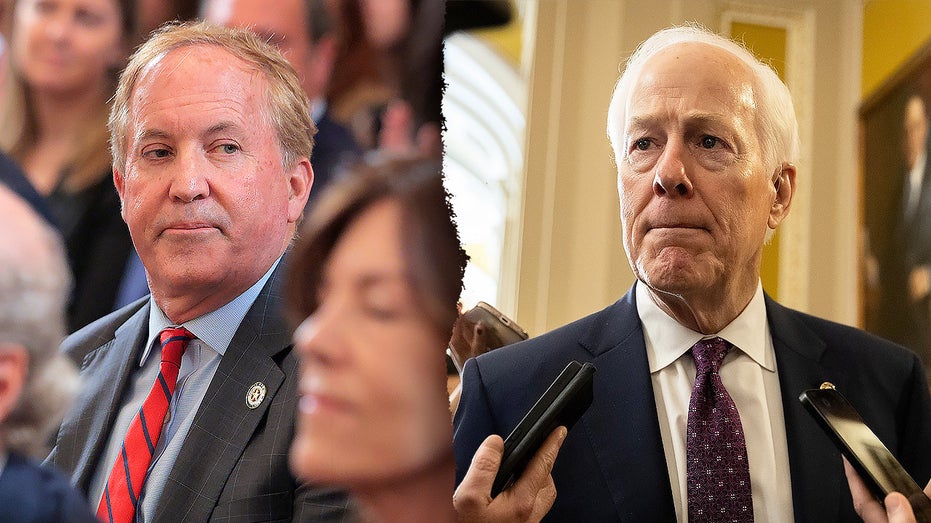
WACO, TEXAS — Two of this primary season’s fiercest rivals have one thing in common: unflinching support for President Donald Trump’s decision to strike Iran. Texas Attorney General Ken Paxton and Sen. John Cornyn, R-Texas, are both leaning into their relationship with Trump and their record of support over the years as they vie for the Republican nomination in Texas’ contentious Senate primary. While it’s a crowded primary, including Rep. Wesley Hunt, R-Texas, all eyes are on Paxton and Cornyn. And as they push for Trump’s coveted endorsement in the final stretch of their intense campaign, their support of the president has remained unwavering. BIPARTISAN REVOLT TARGETS TRUMP’S WAR POWERS AFTER MASSIVE IRAN STRIKES Paxton told Fox News Digital outside his final campaign event ahead of the March 3 primary that he believed Trump “did the right thing” with Operation Epic Fury. When asked what voters were saying, he said, “No one wants foreign wars.” “But the reality is, when you’ve got a country that’s trying to build nuclear weapons, that is willing to use them, and that has demonstrated terrorist activity for decades, 40 or 50 years, you’ve got to deal with that, or eventually it comes to you,” Paxton said. Cornyn had a front-row view of Trump’s decision. Chairman of the Joint Chiefs of Staff Gen. Dan “Raizin” Caine said Tuesday during a press conference at the Pentagon that Trump gave the go-ahead to launch Operation Epic Fury while en route to Corpus Christi, Texas, to promote his energy agenda. 1 IN 4 AMERICANS BACK TRUMP’S IRAN STRIKES, MOST SAY HE’S TOO QUICK TO USE FORCE: POLL Cornyn and others from the Texas delegation were on Air Force One when Trump gave the order. When asked by Fox News Digital whether he was aware of the plan while traveling with the president, Cornyn said Trump was “a very cool customer.” “He asked us whether we supported a strike on Iran,” Cornyn recalled. “The members of Congress who were there in the cabin of Air Force One all raised our hands and said we did support that, recognizing the gravity of the decision and that only the president, as commander in chief, could make it.” In Washington, D.C., lawmakers are grappling with the decision, with members of both parties calling for a vote to limit Trump’s war powers in the region. Both Paxton and Cornyn said they are open to debate on the matter. ISRAELI MINISTER OUTLINES IRAN MISSION GOALS, SAYS IRANIAN PEOPLE NOW HAVE CHANCE TO ‘REGAIN THEIR FREEDOM’ Cornyn argued it comes down to a simple choice. “I want to know who’s standing on the side of American peace and security, and who’s standing on the side of a nuclear-armed Iran,” Cornyn said. “I think that’s the choice.” How long the country remains involved in the operation remains an open question. Trump said in a video address that the U.S. would continue operations “until all of our objectives are achieved,” but later suggested it could take “four weeks or less.” Some Senate Democrats, including Sen. Andy Kim, D-N.J., argued the strike was “the same dangerous and foolish decision” former President George W. Bush, a fellow Texan, made more than two decades ago in the Middle East. “I think the president is doing his best to get in and out. Bush was into nation-building, a very different approach to things. I do not think that’s Trump’s idea here or his endeavor,” Paxton said. “I’m very confident that he’s going to do whatever he can to take them out, and he’s encouraging the people in Iran to take their country back.” “He’s not encouraging us to move in and help them do that,” Paxton added. “We’re just taking out the bad guys, and then it’s up to them to build their country in a way that they see fit.”
GOP Texas candidate in the hot seat after rival exposes family’s Dem donations: ‘Doesn’t make sense’
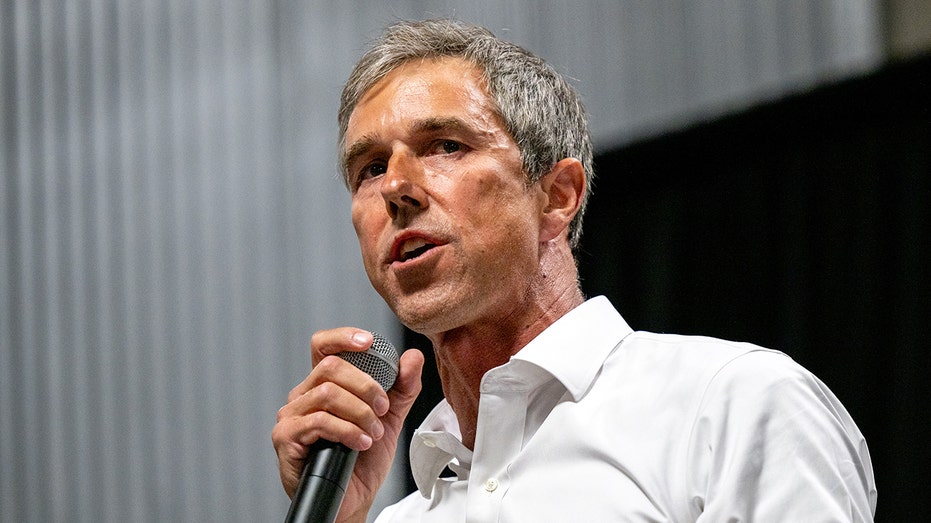
A GOP candidate running for Congress in Texas believes the state’s open primaries may have allowed a Democrat to enter a Republican primary. Alexander Hale can’t help but have questions about the political positions of his fellow Republican challenger, Alexander Kalai, as they face off to represent Texas’ 7th Congressional District. Kalai’s background first caught Hale’s attention in December. “I was simply looking up my opponent’s information. And I saw on Transparency USA that his father had given [thousands] to Beto” and other top Democrats, Hale said, referring to a former Democratic representative of Texas, Beto O’Rourke, the failed Senate and gubernatorial candidate. TRUMP INTRODUCES CORNYN, PAXTON BUT STAYS MUM ON ENDORSEMENT IN HEATED GOP PRIMARY “And I thought, ‘well, that is super strange.’” Federal Election Commission (FEC) filings show that his family has a track record of donating to Democrats, leading Hale to believe that the open primary system in Texas may invite Republican-looking candidates to detract attention from candidates with platforms that align more closely with the GOP base. Hale believes that’s a weakness shared by many states that use open primaries. “I don’t think it’s too much of a stretch to say, well, ‘shouldn’t we only have Republicans electing Republicans and Democrats only electing Democrats?’” Hale said of the primary elections. Texas is one of 14 states that use an open primary system, allowing unregistered candidates to announce their consideration for a party’s primary race. In Kalai’s case, his website states that he supports traditional Republican positions like school choice, protecting women’s sports and an emphasis on deregulation to promote economic activity. Kalai did not respond to a request for comment on his positions. TEXAS EARLY VOTING BEGINS AHEAD OF CONTENTIOUS MARCH 3 PRIMARY ELECTIONS Kalai’s campaign has received $182,000. Of those, $134,000 has come from his own pocket. Kalai lists his source for those donations as “self-employed.” His campaign has also received two donations from his parents, Bashar and Grigitte Kalai, both for $3,500 — the most one donor can give a candidate for the primary, according to federal law. Bashar Kalai’s donation to his son, a Republican, goes against the grain of his past political contributions. As the president and CEO of Amerapex, a technology, engineering and industrial services company based in Houston, Bashar has a long track record of political donations — to Democrats. In addition to his contributions to Beto O’Rourke, he has donated to the campaigns of Hillary Clinton, Sen. Tim Kaine, D-Va., the House Majority PAC, which is controlled by Democratic leadership in the House of Representatives and other Democratic candidates. Hale believes his proximity to his son should raise questions about Alexander Kalai’s affiliations. “I’d love to hear an explanation as to why someone comes out of the blue with all this blue money and says, ‘Hey, I’m a Republican. You’ve never heard of me. I’ve never voted in a primary, but I’m the Republican you need.’” “It doesn’t make sense,” Hale said. DAVID MARCUS: IN DALLAS, VOTERS WEIGH TWO SENATE PRIMARIES AND NOW, A WAR Hale said he fears that candidates with sufficient financial backing, like Kalai, could present a convincing picture to voters in a primary process where fundraising is often used to establish legitimacy. “Money buys attention. In open primaries, we end up in a situation where whoever has the most money — it feels like whoever has the most money wins,” Hale said. Hale and Kalai will face off at the ballot box on Tuesday evening alongside three other Republican candidates. Whoever wins that primary will face off against incumbent Rep. Lizzie Fletcher, D-Texas, in November.
Kristi Noem to face Senate grilling over Minneapolis shootings as DHS shutdown hits week 3
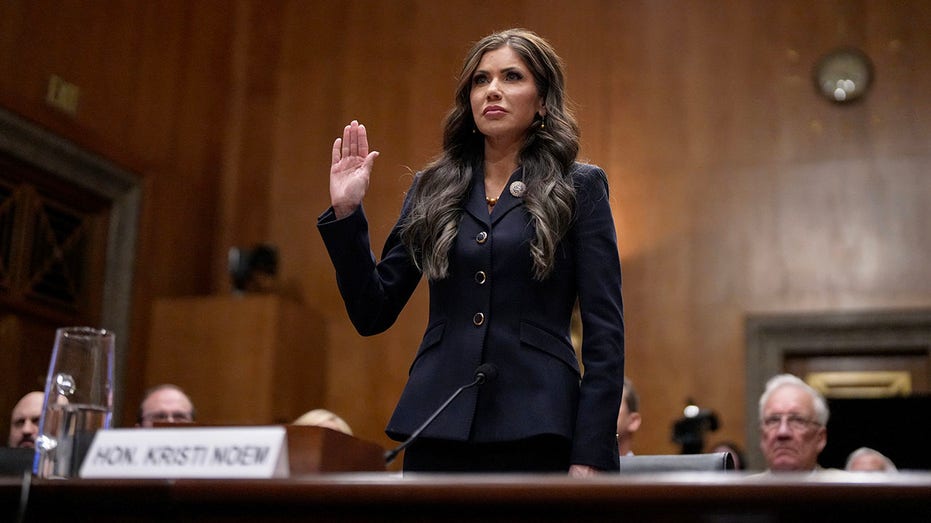
Homeland Security Secretary Kristi Noem heads to Capitol Hill Tuesday to face lawmakers demanding she resign, be fired or impeached. Her appearance before the Senate Judiciary Committee comes as members of both parties criticize her handling of the Trump administration’s immigration operations throughout the country. Some Democrats have called for her to face impeachment. Her testimony has been in the works for months. Senate Judiciary Chair Chuck Grassley, R-Iowa, had been seeking her appearance to conduct routine oversight of the Department of Homeland Security (DHS). DHS FUNDING STALEMATE THAWS AS WHITE HOUSE SENDS DEMOCRATS ‘SERIOUS’ COUNTEROFFER But it wasn’t until after the fatal shootings of Alex Pretti and Renee Nicole Good during immigration operations in Minneapolis that Noem agreed to testify. Last month, President Donald Trump dismissed the idea of firing Noem. “Why would I do that?” Trump said. “We have the strongest border in the history of our country. We have the best crime numbers we’ve ever had, going back to the year 1900 — that’s 125 years.” Still, she is expected to face tough questioning from Senate Democrats. DHS SECRETARY KRISTI NOEM ADDRESSES CALLS FOR HER FIRING, NEW ALEX PRETTI VIDEO Sen. Dick Durbin, D-Ill., the top Democrat on the committee, said at the time the hearing was announced that Noem previously “refused to appear before the Senate Judiciary Committee last year and now tells us that she will be available in five weeks — should she still be DHS Secretary at that time.” “With all of the violence and deaths involving DHS, the Secretary is apparently in no hurry to account for her mismanagement of this national crisis,” Durbin said in a statement. “And she expects us to rubber stamp her record-breaking budget in the meantime.” And there’s at least one Senate Republican on the panel, Sen. Thom Tillis, R-N.C., who has emerged as one of her top critics. In January, Tillis said he would place holds on DHS nominees coming through the committee until Noem agreed to testify — a move that would block Trump’s picks for the agency. SCHUMER, DEMS AGAIN BLOCK DHS FUNDING, FORCE STATE OF THE UNION SHOWDOWN “I’m not going to get into impeachment,” Tillis said at the time. “I think it should be a management decision. She needs to go.” Her testimony also comes as a partial government shutdown affecting only DHS enters its third week. Some Republicans have expressed concern that the shutdown could hamper the agency’s ability to respond proactively to potential threats in the U.S., particularly following Trump’s weekend strikes in Iran, along with other security challenges that could arise during a prolonged closure. The White House and Senate Democrats, led by Minority Leader Chuck Schumer, D-N.Y., have been negotiating for weeks, but neither side has reached a breakthrough. The White House sent its latest offer to Democrats, which a White House official described as “serious” in a statement to Fox News Digital. Still, no agreement has been reached, and the agency remains shuttered. “Democrats need to make a move to end the shutdown before more Americans are harmed by a lack of funding for critical services like disaster relief,” the official said.
Supreme Court blocks California ban on notifying students’ parents about gender transitions

The Supreme Court on Monday cleared the way for California schools to notify parents if their children want to change their gender identity without approval from the student amid a challenge against the Golden State’s ban on so-called forced outing of transgender students. The court granted an emergency appeal from a conservative legal group, the Thomas More Society, blocking, at least for now, a state law that prohibited automatic parental notification requirements if students change their gender expression or pronouns at school. The Thomas More Society praised the decision as “the most significant parental rights ruling in a generation.” Two sets of Catholic parents represented by the legal group argued that the state law, signed by Gov. Gavin Newsom in 2024, caused schools to mislead them and secretly facilitate the students’ gender transitions. CATHOLIC GROUP ASKS SCOTUS TO BLOCK CALIFORNIA LAW AGAINST REVEALING STUDENTS’ GENDER IDENTITIES TO PARENTS But California contended that students have the right to privacy about their gender expression, particularly if they fear rejection from their families who may not support their decision to adopt a new gender identity. The state also said school policies and state law sought to balance student privacy with parental rights. Last year, state education officials told school districts that the state’s policy “does not mandate nondisclosure.” Newsom’s office also previously said that “parents continue to have full, guaranteed access to their student’s education records as required by federal law.” The Supreme Court sided with the parents on Monday and reinstated a lower-court order blocking the law and school policies while the case continues. “The parents who assert a free exercise claim have sincere religious beliefs about sex and gender, and they feel a religious obligation to raise their children in accordance with those beliefs. California’s policies violate those beliefs,” the majority wrote in an unsigned order, adding that state policies also burden the free exercise of religion. Conservative Justices Samuel Alito and Clarence Thomas also said they would have gone a step further and granted the teachers’ appeal to lift restrictions for them. The three liberal justices dissented, saying the case is still working its way through lower courts and there was no need to take action now. “If nothing else, this Court owes it to a sovereign State to avoid throwing over its policies in a slapdash way, if the Court can provide normal procedures. And throwing over a State’s policy is what the Court does today,” Justice Elena Kagan wrote. A federal judge ruled in December 2025 that schools cannot prevent teachers from sharing information about a student’s gender identity with their parents, but an appeals court blocked that ruling last month, leading the plaintiffs to ask the nation’s highest court to step in. TRUMP ADMIN FINDS CALIFORNIA BAN ON NOTIFYING PARENTS OF GENDER TRANSITIONS VIOLATED FEDERAL LAW The high court has been weighing whether to hear arguments in cases out of other states such as Massachusetts and Florida filed by parents who say schools facilitated gender transitions without notifying them. The U.S. Department of Education also announced last month that the California law violates federal law. The findings of the federal investigation could put at risk the nearly $8 billion in education funding the federal government gives the state each year if state officials do not work with the Trump administration to resolve the violations. The Trump administration is also pursuing legal action against California and threatening to withhold funding over a policy allowing biological males to compete in girls’ sports. The Associated Press contributed to this report.
Trump sends official notification to Congress on strikes against Iran
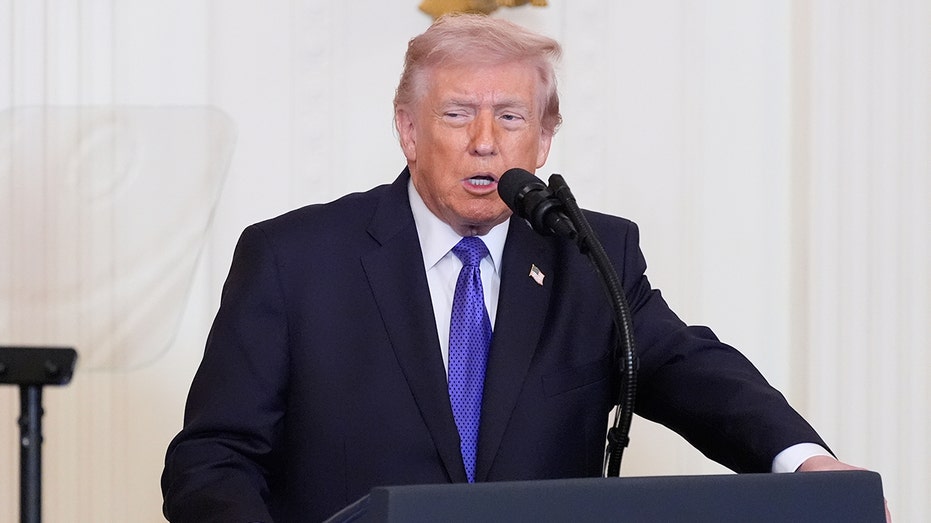
President Donald Trump on Monday sent an official notification to Congress about the U.S. strikes against Iran, in which he attempted to justify the military action in the now expanding conflict in the Middle East. In a letter obtained by FOX News, Trump told Senate President Pro Tempore Chuck Grassley, R-Iowa, that “no U.S. ground forces were used in these strikes” and that the mission “was planned and executed in a manner designed to minimize civilian casualties, deter future attacks, and neutralize Iran’s malign activities.” This comes after joint U.S.-Israeli strikes against Iran on Saturday as part of Operation Epic Fury, triggering a response from Tehran and a wider conflict in the region. The strikes killed the Islamic Republic’s Supreme Leader Ali Khamenei and other military leaders. TRUMP ADMIN WARNED LAWMAKERS ISRAEL WAS ‘DETERMINED TO ACT WITH OR WITHOUT US’ BEFORE MASSIVE IRAN STRIKES Trump wrote that it is not yet possible to know the full scope of military operations against Iran and that U.S. forces are prepared to take potential further action. “Although the United States desires a quick and enduring peace, not possible at this time to know the full scope and duration of military operations that may be necessary,” Trump wrote. “As such, United States forces remain postured to take further action, as necessary and appropriate, to address further threats and attacks upon the United States or its allies and partners, and ensure the Government of the Islamic Republic of Iran ceases being a threat to the United States, its allies, and the international community.” “I directed this military action consistent with my responsibility to protect Americans and United States interests both at home and abroad and in furtherance of United States national security and foreign policy interests,” he added. “I acted pursuant to my constitutional authority as Commander in Chief and Chief Executive to conduct United States foreign relations.” Trump said he was “providing this report as part of my efforts to keep the Congress fully informed, consistent with the War Powers Resolution,” as some Republican and Democrat lawmakers attempt to restrain the president’s military action, which they affirm is unconstitutional without congressional approval. The president also accused Iran of being among the largest state sponsors of terrorism in the world and purported that the “Iranian regime continues to seek the means to possess and employ nuclear weapons,” even after the White House said in June that precision strikes at the time “obliterated” Iran’s nuclear enrichment facilities. US SURGES FORCES TO MIDDLE EAST AS PENTAGON WARNS IRAN FIGHT ‘WILL TAKE SOME TIME’ “As I previously communicated to the Congress, Iran remains one of the largest, if not the largest, state-sponsors of terrorism in the world,” Trump said in the letter on Monday. “Despite the success of Operation MIDNIGHT HAMMER, the Iranian regime continues to seek the means to possess and employ nuclear weapons. Its array of ballistic, cruise, anti-ship, and other missiles pose a direct threat to and are attacking United States forces, commercial vessels, and civilians, as well as those of our allies and partners.” “Despite my Administration’s repeated efforts to achieve a diplomatic solution to Iran’s malign behavior, the threat to the United States and its allies and partners became untenable,” he continued. Fox News’ Tyler Olson contributed to this report.
Musk, xAI tout newest Grok update as only ‘non-woke’ platform: ‘Doesn’t equivocate”
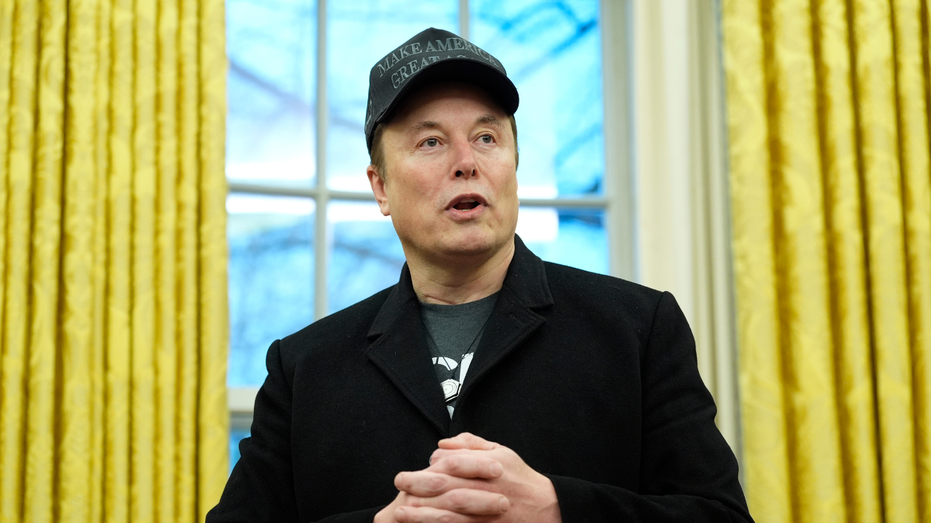
X’s artificial intelligence chatbot Grok has begun rolling out its first beta version of Grok 4.20, which Elon Musk and X say will provide not only better performance and new features but also the least “politically correct” platform in terms of liberal bias. Over the past week, users on X, including Musk, have been touting search results from Grok showing “non woke” answers to questions about popular cultural issues and figures compared to results from Anthropic’s Claude, Open AI’s ChatGPT, and Google’s Gemini. “Grok 4.20 is BASED,” Musk also posted on X last week. “The only AI that doesn’t equivocate when asked if America is on stolen land. The others are weak sauce.” Musk’s post included screenshots of ChatGPT saying the “short answer” is “yes”, Claude ultimately saying “yes” and Gemini saying the answer is “complex” while Grok responds with “No.” TRUMP SAYS HE PLANS TO ORDER FEDERAL BAN ON ANTHROPIC AI AFTER COMPANY REFUSES PENTAGON DEMANDS In another post shared by Musk, the AI platforms are asked for a “yes” or “no” if President Donald Trump is “racist.” Grok responded with “No” while Gemini responded by saying the answer is not as simple as “yes” or “no.” Claude and ChatGPT also declined to respond with a “yes” or “no”: arguing it’s a more nuanced issue. ELON MUSK POURS A STAGGERING $10M INTO KENTUCKY SENATE RACE, BACKING PRO-TRUMP BUSINESS OUTSIDER “Grok 4.20 is the only non-woke AI in existence, engineered to pursue maximum truth, and deliver unfiltered, evidence-based answers where every other major model has been lobotomized by the woke mind virus,” an xAI spokesperson told Fox News Digital. The recent attack on Iran by the United States and Israel also provided examples on social media of Grok results appearing less “biased” than other platforms, including a post showing what happened when each platform was asked a “yes” or “no” question about whether Trump was “right” to authorize the strike. Grok responded with “yes” while ChatGPT said “no” and both Gemini and Claude argued that the situation was too nuanced to respond definitively one way or the other. “In times of split second decision making by our nation’s top leaders — it’s clear which AI our military should be using,” ‘The Katie Miller Show’ host and former DOGE adviser Katie Miller posted on X. “Truth-seeking is @grok’s best feature.” Various websites have attempted to track the political leanings of artificial intelligence platforms, including Dartmouth College’s Polarization Research Lab, last updated in 2025, which ranked Gemini as the least political. In early 2025, a Manhattan Institute report concluded Grok was a close second to Gemini in terms of political bias. An OpenAI spokesperson pointed Fox News Digital to its public ModelSpec which defines how ChatGPT should behave and “assume an objective point of view” and said “we actively test and measure political bias in ways that mirror real-world use and publish our findings, including evaluations across hundreds of prompts and real production traffic, where detectable political bias is rare (fewer than 0.01% of responses show any detectable political bias) and continues to decline with newer models.” Fox News Digital reached out to Anthropic and Google for comment.
Trump admin warned lawmakers Israel was ‘determined to act with or without us’ before massive Iran strikes

Speaker Mike Johnson, R-La., described the recent U.S.-Israeli strikes on Iran as a defensive measure, saying, “Israel was determined to act with or without us” following a classified briefing on Monday evening. Johnson told reporters after the briefing that Israel viewed Iran’s capabilities as an existential threat and was prepared to conduct operations regardless of U.S. participation. He said Israel’s assessment shaped American deliberations, and it was “determined to act in their own defense here, with or without American support.” The speaker said administration officials had to weigh risks to U.S. forces, regional assets and interests before supporting the operation. “They had to evaluate the threats to the U.S., to our troops, to our installations, to our assets in the region and beyond. And they determined, because of the intelligence that we had, that a coordinated response was necessary,” Johnson said. Johnson said he guarantees that if the U.S. had not acted, the Trump administration would have been hauled in by Congress and asked why they waited if they had “existential intelligence, knowing that that would happen.” EX-CIA CHIEF WARNS NOT TO UNDERESTIMATE IRAN’S RESPONSE AFTER OPERATION EPIC FURY EXPOSED REGIME ‘ARROGANCE’ “I am convinced that they did the right thing,” he said. Rubio confirmed that Israel was prepared to act against Iran and said the president “made a very wise decision.” “We knew that there was going to be an Israeli action. We knew that that would precipitate an attack against American forces,” he told reporters. “And we knew that if we didn’t preemptively go after them before they launched those attacks, we would suffer higher casualties.” FIRES RAGE AT IRAN’S BANDAR ABBAS NAVAL HEADQUARTERS, STRAIT OF HORMUZ TRAFFIC STALLED Sen. Mark Warner, D-Va., a top Democrat on the Intelligence Committee, emerged from the briefing and said he did not believe there was an “imminent threat” prior to Saturday’s strikes. “There was no imminent threat to the United States of America by the Iranians. It was a threat to Israel,” he said. “We equate a threat to Israel is the equivalent of an imminent threat to the United States. Then we are in uncharted territory.” “We have seen the goals for this operation change now, I believe 4 or 5 times,” he went on. US SURGES FORCES TO MIDDLE EAST AS PENTAGON WARNS IRAN FIGHT ‘WILL TAKE SOME TIME’ Rubio insisted the operation was not about Iranian regime change but about taking out its capabilities as a threat to the region – focused on ballistic missiles and naval capacity. He did not say whether strikes would extend to nuclear facilities. “I do believe there is more than adequate justification for our American and Israeli actions,” Senate Armed Services Committee Chairman Roger Wicker, R-Miss., told reporters he believes there is “more than adequate justification for our American and Israeli actions,” without saying more. House Foreign Affairs Committee Chairman Brian Mast, R-Fla., told Fox News Digital in an interview afterward that he felt administration officials did a good job of illustrating the threat level faced by the U.S. in the days leading up to the strikes. “I think that’s largely been very open source. The president laid that out, you know, very clearly. It does go beyond that to what I can’t get into, but it goes beyond that. I’m sure it’ll come out in the administration’s good time, but it’s not for me to say,” Mast said. “But the more immediate nature of threats — I’m going through the negotiations with [Special Envoy Steve Witkoff], [Jared Kushner], Rubio, others that were a part of having those conversations and throughout that 10-day window of, you know, let’s call it countdown to make a deal, the threats that were going on in that window is probably the high-side information that you have.” He also said there was a lot of daylight between what Democrats and Republicans in the briefing considered an “imminent threat.” “It’s like, for me as a soldier, right, if I see an enemy machine gun nest, that to me, given that it’s an enemy machine gun nest, is an imminent threat,” Mast said. “To Democrats, unless that machine gun is burning up its barrels firing at you, it’s not yet an imminent threat. And those are the two separate ways that we’re looking at it.”. On February 26th, the U.S. launched Operation Epic Fury against Iran in coordination with Israel. The offensive campaign has resulted in the death of 49 top Iranian leaders, including the Supreme Leader, Ayatollah Ali Khamenei. Six U.S. service members have lost their lives in Iranian counterattacks. The opening phase of the conflict struck more than 1,000 targets in the first 24 hours, according to Gen. Dan Caine, chairman of the joint chiefs of staff. American B-2 bombers flew 37-hour round-trip missions from the continental United States to hit underground facilities with penetrating munitions, he added.
Radical US mosques honor Iran’s Supreme Leader’s ‘martyrdom’ with memorial services, eulogy: ‘Our leader’

Two United States-based mosques that have faced scrutiny for their ties to Iran held formal events to “honor” Ayatollah Khamenei after U.S. military forces took out the Islamic leader of Iran this weekend, including one mosque in Northern Virginia that referred to Khamenei as “our leader.” Located in Manassas, Virginia, and Dearborn Heights, Michigan, the mosques both publicly advertised events eulogizing the slain leader. In a flyer for the “Potluck Iftar” honoring Khamenei, which is a ceremony where Muslims break their Ramadan fast, the Manassass Mosque, which has faced questions over alleged ties to Iran, referred to Khamenei as “our leader.” Meanwhile, at the Islamic House of Wisdom (IHW) in Dearborn Heights, which has also faced scrutiny over its ties to Iran, the center’s Imam Mohammad Ali Elahi called the U.S. military offensive “evil” and argued that it was based on false-pretenses. “You promised that America First, and now we ended up to have Netanyahu first,” the Michigan-based Imam told his congregants after the attacks this weekend. “Now we realize that all their talk about nuclear [unintelligible] was a joke, it didn’t even exist. From the beginning talking about regime change, we want to change, because we don’t like it. So, starting an illegal – illegal war – and then go and bomb the house of the leader of the country. Where is justification for this? Where is their reason for this, at all?” FBI REMAINS ON HIGH ALERT, DHS MEMO WARNS OF LONE WOLF ATTACKS AMID WAR WITH IRAN The Michigan-based Islamic worship center and its Imam also touted talking points from Iranian state media and officials that have not yet been confirmed, claiming hundreds of young girls were killed by a missile strike on a school in Iran. Hossein Kermanpour, a spokesperson for Iran’s health ministry, said Saturday that 60 young children were killed and 80 injured, but by Sunday Iranian officials were saying the death toll had risen to about 150, according to the Wall Street Journal. The Islamic Republic News Agency (IRNA) posted on X on Monday that the alleged death toll was now as high as 168. According to The Guardian, Captain Tim Hawkins, a spokesperson for U.S. Central Command, indicated they were “aware of reports concerning civilian harm resulting from ongoing military operations,” adding that, “We take these reports seriously and are looking into them.” CHASING THE APOCALYPSE: RADICAL SIITE CLERICS ON AMERICAN SOIL PREACH PROHETIC SHOWDOWN WITH US “Why a school? Why not a military base or a missile base? They attack children first. It’s a form of their – again, call me crazy – but child sacrifice,” said a speaker at the IHW’s Ramadan program, who gave a speech alongside Imam Mohammad Ali Elahi. “This is a war against justice, against morality, against legality, against truth,” Imam Mohammad Ali Elahi added as he was speaking to his followers. “Now we realize that all their talk about nuclear [unintelligible] was a joke, it didn’t even exist. From the beginning talking about regime change, we want to change, because we don’t like it,” the Imam continued. IRAN’S SECURITY CHIEF ACCUSES TRUMP OF ‘ISRAEL FIRST’ POLICY, ‘DELUSIONAL FANTASIES’ IN REGION Both the Manassas Mosque and the IWH were listed in a July 2023 letter that Congressional Republicans sent to former Attorney General Merrick Garland and former Director of National Intelligence during the Biden administration, Avril Haines. The letter called out a network of U.S.-based mosques throughout the country that have received financial funding from the Alavi Foundation, which lawmakers said “is a large foundation that has been in litigation for years because of allegations it operates on behalf of the Iranian regime, a state sponsor of terrorism,” or have other close ties to the Iranian regime. “The Imam of IHW, Mohammad Ali Elahi, served as the head of ‘political ideology’ for the Iranian Navy in the 1980s, according to a publicly available Central Intelligence Agency report.” the letter asserts. “He personally claims to be ‘friends’ with three former Iranian Presidents, and since moving to the US, he has had seemingly non-stop contact with senior regime officials.” The letter, which included concerns also laid out in a report drafted by the George Washington University Program on Extremism, adds that IHW has been “a significant purveyor of extremist propaganda, in line with the Iranian regime’s views.” The Manassas Mosque was among the groups that received financial funding from the Alavi Foundation, reportedly totaling around $200,000. The mosque has also reportedly been gifted expensive relics from the Iranian regime, and alleged video of the inside reportedly shows the worship center filled with pictures of Islamic Revolutionary Guard Corps (IRGC) “martyrs” killed in Syria, a life-size cut-out of Khamenei and Iranian flags or other symbols. Fox News Digital reached out to both mosques, but neither returned requests for comment in time for publication.

